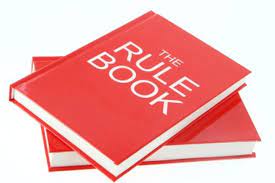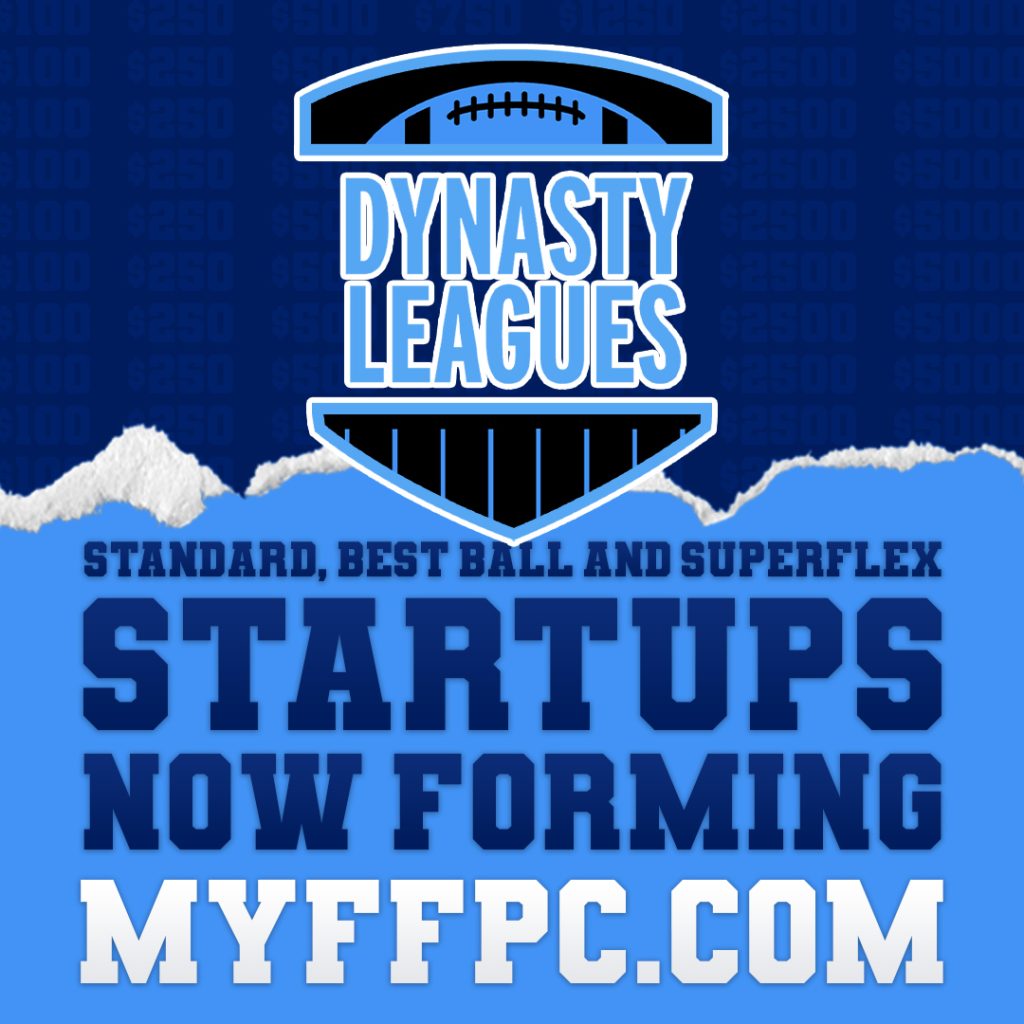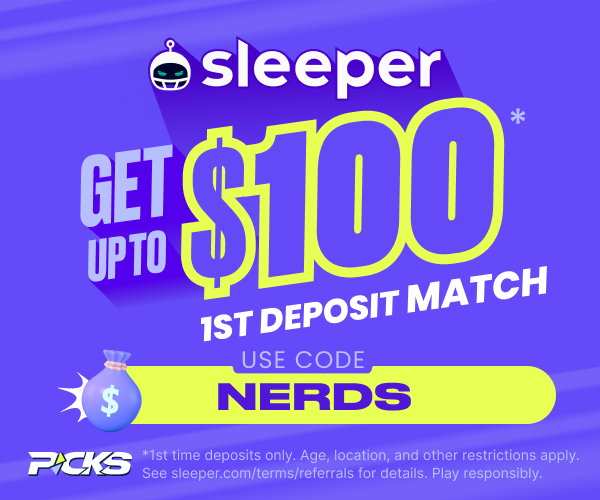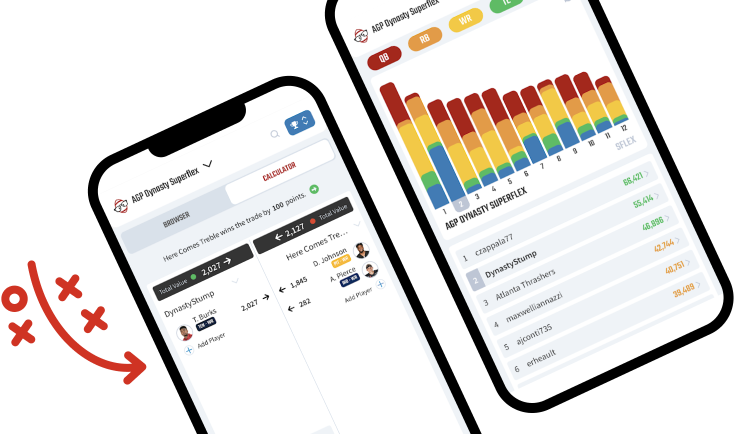There are a variety of things you should consider as commissioner to ensure a smooth process all year long in your leagues.
Clear Rules
While rules are boring, clear rules will make the league more fair and fun. This will help to avoid conflict at the same time. Some managers may assume one thing but others another. This will ensure everyone is on the same page from the start.
Consider what percentage you need of a league vote to change rules. You may require a higher vote threshold around league settings, such as changing the starting lineup. You might use A lower percentage of the vote for something minor such as what day FAAB bids occur. Your league will be much happier with the results, win or lose, by indicating the percentage needed before the vote.
Another thing to consider around league votes is what can not go to a league vote. Something as drastic as changing from start 1 to Superflex may be off-limits. Noting from the beginning the line of demarcation between these will help to reduce disgruntled members as the league progresses.
Payouts
Before you start your league, payouts should be determined. A regular season allocation should be determined in addition to a playoff allocation. Some leagues also invest the dues or request a little more upfront that will go towards a Dynasty pot. Typically this goes to the first manager to win three championships. It will be important to clarify these breakouts and how much the dues will be.
In order to collect and invest the money at the same time, a deadline should be set for league dues. On the flip side, a timeline should entail when money is to be paid out as well. For ease, these times can coincide, so only the difference needs to be moved.
One of the biggest risks in dynasty leagues is a manager selling all their future picks, flaming out, and leaving the league. To avoid the other league-mates paying to replace that owner, all future picks can be paid for in advance. At the start of the league, we make each owner pay for four years of league dues. This includes the current year and future three years of draft capital they acquire.
It may be a lot to pay in all at once, so spreading over two years is also a good option. Since each team will have paid for future league dues, the dynasty owner can sell their team and recoup that money assuming their team remains in average contention. If their assets are depleted, the new owner taking their spot will have three years of paid dues to start. This makes it much easier to attract new managers to the league.
Deadlines
Make deadlines very clear. It should be clear when the trading deadline is and exactly how it works. Does it end at a specific time, or is it by the player based on their game time? Making this clear will avoid last-minute blockbuster trades from not occurring due to a minor misunderstanding.
Ensure everyone is clear when waivers go off during the season. To avoid confusion, make sure advance notice is given in these cases, so an owner doesn’t miss an important opportunity.
On that same note, everyone needs to know when waivers start and end. If an owner plans to make one last waiver move to set up their team for next year but misses the deadline, they can be stuck with a retiring player locked on their roster during all of the offseason. Conversely, since the offseason doesn’t need to be followed weekly as it does during the season, many leagues will halt waivers or reduce their frequency.
Ensuring everyone is aware of when waivers will start back up is crucial.
Lastly, it should be clear when the waiver budget restarts. It would be a shame for someone to end up with a ton of waiver budget they planned to spend but didn’t realize the deadline had passed. This will typically line up with the end of the fantasy playoffs. However, some leagues are different, so making this clear will be key.
Management
It goes without saying that you can’t manage two teams in the same league simultaneously. To avoid any issues with independence, each team needs to be separately managed. This can get tricky with friends or family who make a trade that seems largely in one team’s favor.
Another obvious point is that there should be no interleague trades. A lot of fantasy players are in multiple leagues with each other. You can not make a bad trade in one league for an advantageous trade in another league.
Trading
One of the first decisions to make regarding trading is whether the league can veto trades. In dynasty especially, owners will have vastly different values of players. This may be positional, age-related, pick vs. player related, etc. Determining whether a trade is fair is a much tougher call. In our leagues, we allow all trades to go through unless it is egregious and all other members not a party to the trade believe the trade is suspect.
Contingency
Another consideration to plan for is whether you will allow trading with a contingency. For example, if a first-round rookie pick is traded and falls to a certain level, such as 1.01, you get a compensatory second back from that team. Our leagues allow this, but it must be denoted in the chat and confirmed by both parties.
Some league members will want to trade an upcoming pick that isn’t on their team yet. For example, a 2026 pick may not be released yet but will be after the draft. A team may want to trade that pick in advance. This is a slippery slope, and it is likely best to avoid allowing this to occur.
However, if the league is in the offseason and will be released shortly, you can consider it. Making sure the rule around this is clear will help ensure fairness across the board.
Timing
There is more risk to an offeror than an offeree in a trade. News may come out that the player has been injured, traded, cut, extended, etc., during the offer period. In this case, the offering team would be at risk if he didn’t rescind the offer. To avoid this trading risk, we have the accepting team reoffer the trade, so it’s back in the court of the initial owner who proposed the trade.
We also add a similar contingency for trades sitting over seven days. If both teams accept, there is no harm. But, if the offeree accepts and the offeror no longer wants to make the trade, it will be reversed or canceled as long as this is brought to the league’s attention shortly after. This prevents the offeror from having to monitor pending trades that owners have been lazy in responding to. These two concepts promote free trading without risk to the offeror.
You may also want to consider how to handle a trade that is accepted after the start of play for the week (any player in trade). It may make sense to have the trade pending all parties to the trade remaining uninjured. This avoids the risk of someone starting their player, him getting hurt, and then selling an injured player. If the trade was made after that week, would it still have gone through? A team shouldn’t have the benefit of playing the player and selling high on an injured player at the same time.
Similarly, if a trade is made right before the start of the game and it effectively pulls a player out of the lineup without time to fill that slot, this can cause a big issue. In our leagues, the trade will be canceled and can be resubmitted after the week’s games are played. This will avoid two issues. One, an owner is now unfairly having to play a man down. To rectify this after the fact, you would have to know who the replacement player would be. It may be too late to determine that, especially if the player they wanted to start is already off to a hot start in their game.
Team Swaps
We allow an owner to sell their team to someone else in the league. This effectively allows teams to switch if they agree on a price difference to pay. If a team has made a championship run and now needs to rebuild, he can sell that team to another league-mate and pay what they believe the difference in value is between their teams. However, the championship wins for the “3-win dynasty pot” (discussed previously) are also traded with the team swap. This prevents a team from winning twice and then selling their team (at a loss) to buy a more competitive team. They may be in search of that third win and dynasty pot which may be more valuable than the loss they are taking.
If they wanted to swap teams with no sale price difference, that would constitute a normal trade. The team, in this case, would keep their prior championship win total. This remains fair because the teams would have to be of equal value for that to happen. A team wouldn’t trade for a clearly depleted team and not receive compensation for that swap.
Lottery and Other Anti Tanking Measures

A season can go south if teams start tanking and not setting lineups. Teams that play a tanking team that sets a lineup have a distinct disadvantage vs. a tanking team that is not setting a lineup. It is important to require teams to set an optimal lineup. Additionally, using max points for draft order and/or a lottery system helps reduce the value of tanking. See my recent article for an in-depth look into this creative workaround.
Playoffs
Most standard leagues will have a playoff bracket set with the top two teams receiving byes and the #3 seed playing #6 and #4 playing #5. While this is fine, having the #3 seed call out who they want to play in the first round can be more fair and exciting.
This accomplishes two things. One, it creates way more excitement in the event of an upset. Second, it provides an advantage to the #3 seed if the #6 seed loads up in a trade right before playoffs. It would be unfair and bad for the league to have a situation where it’s in the best interest of the #3 seed to tank the last week of the regular season to try to play the #5 seed instead of the #6 seed.
This solves all of these issues to keep it fair and fun. In the following round, the same will occur, with the #1 seed calling out their choice. This becomes more advantageous in the event of a key injury to a team. It seems fair to give an edge to the top teams in the regular season throughout the playoffs.
Dissolving the League
While we all hope dynasty leagues will continue forever, there comes a time when they end. When this time comes, the three years of future money paid in plus any gain or loss earned on that money in investments needs to be handed back to owners in a fair way.
In our league, if an owner has already won the dynasty pot of 3 championships, the gain/loss left over on any invested dues will roll to the main pot of money (future league dues). If no owner has won 3 championships, the highest winning owners will split this pot evenly.
With just the league dues pot left to split, each team will be valued (players and picks) using a trade calculator (KTC unless another is a better option). The teams are ranked in dynasty value per that trade calculator. The pot will then be split 13.83% down to 2.83%, with each spot decreasing by 1%. This should more fairly distribute team value and not cause harm to a team that was gearing up for a championship run before the league abruptly ended. You can work on whatever split you want, but this seems like an agreeable and easy way to handle it.
Caveat
It’s also important to determine who has a say if a situation has not specifically been denoted in the rules. Determine whether this will be handled by league vote and/or commissioner decision. The interest of fairness should be the top priority in all decisions reached.










